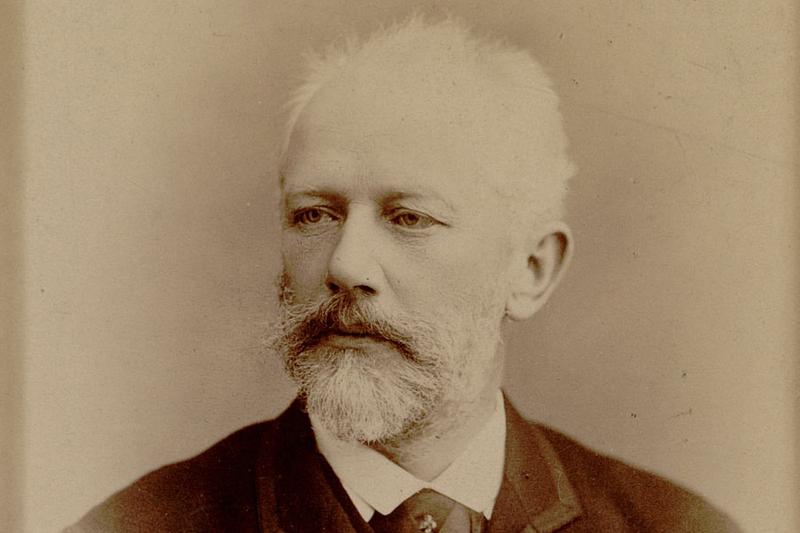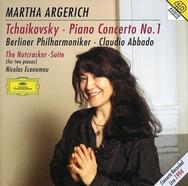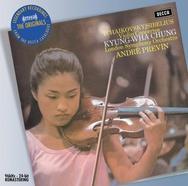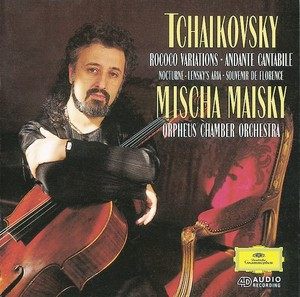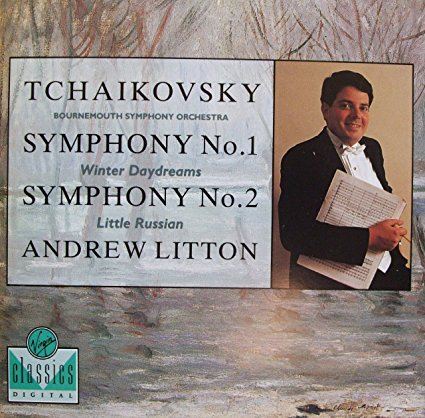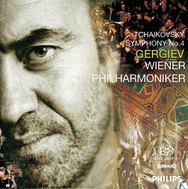1. Piano Concerto No. 1 and “The Nutcracker,” arr. for 2 Pianos
Martha Argerich/Claudio Abbado/Berlin Phil
“Bad, trivial and vulgar” is how the great Russian pianist Nicolai Rubinstein described the opening expansive theme to Tchaikovsky’s Piano Concerto No. 1 when Tchaikovsky played him its first bars. Ouch. Still, that didn’t stop the rest of the world subsequently falling for their sheer might and full-on romanticism, and of course the concerto’s emotional and stylistic world is so much more than those über-famous opening bars. Sure, it’s virtuoso to the nth degree, but under the right fingertips it’s also as lyrical, weightlessly dancing, capricious and human as it is mighty. All qualities Martha Argerich brings in bucketloads to what was her third recording of the work, recorded live in 1994. The extra is a delight too: a 1983 duet with fellow pianist Nicolas Economou, performing his own two-piano arrangement of “The Nutcracker,” which is equally a masterclass in virtuosic prowess coupled with heart and joy.
2. Violin Concerto (and Sibelius Violin Concerto)
Kyung Wha Chung/André Previn/London Symphony Orchestra
A 1970 recording from Chung right at the start of her career. In fact, her debut disc, the ink still wet on her Decca contract. That contract had come off the back of a triumphant London concert appearance with the LSO, stepping in last minute to replace a suddenly-cancelled Itzhak Perlman, and on this recording you can really hear the chemistry between her, the orchestra and their principal conductor Previn. Everyone is in top form and reveling in the partnership, and Chung herself is magnificent; just listen to the edge-of-the-seat searing power of her first movement cadenza, and then how, at the orchestra’s re-entry, her trills shine technicolored over them. Overall there’s both warmth and energetic bite, her articulation more detached than that of recent releases from violinists such as Janine Jansen or Lisa Batiashvili, but also with a dancing svelteness. No wonder this performance brought her to international attention.
Rococo Variations, Andante Cantabile, Nocturne in D Minor, Lensky’s Aria and “Souvenir de Florence”
Mischa Maisky/Orpheus Chamber Orchestra
Maisky leads the Orpheus Chamber Orchestra from his cello in this beautifully polished 1997 studio recording. Headlining the program are the Rococo Variations, Tchaikovsky’s delicately classy homage to the 18th century, and they’re gorgeously rendered. Maisky himself brings a lovely playfulness and ease to his solo lines. He’s also decided that the notes on the page can largely do the Baroque talking, opting himself for a light, legato smoothness rather than Baroque-aware detached articulation. The orchestra is wonderfully sensitive in their support too; take the silky cushion they provide underneath Maisky’s fluttering, darting virtuosities in the third Rococo variation. Add Lensky’s aria from Onegin, the Nocturne in D Minor, the Andante Cantabile, and an orchestrated version of the “Souvenir de Florence” Sextet in D Minor, Op. 70 (which, incidentally, actually means you hear rather less of Maisky!), and this is hugely enjoyable stuff.
4. Symphony Nos. 1 and 2
Andrew Litton/Bournemouth Symphony Orchestra
Set in a very enjoyable concert hall acoustic, this 1990 release shows Andrew Litton two years into his chief conductor role with the Bournemouth Symphony, and still in his early thirties. Overall, there’s a lovely freshness to the sound, with the finer details of Tchaikovsky’s orchestration beautifully picked out. Zooming in closer, the Mendelssohn-esque flavor of the “Winter Daydreams” No. 1 comes across strongly, whilst the “Little Russian” No. 2 is an appropriately zesty affair, with a particularly sparkling third movement scherzo.
5. Symphony No. 4
Valery Gergiev/Vienna Philharmonic
The Vienna Philharmonic are famously great under some conductors, and famously autopilot under others. So it’s not an all-out surprise that in this particular performance, recorded live in Vienna’s Musikverein in 2002, they do take a little while to pull their socks up in the first movement. However pull their socks up they do, and by the midway point they and Gergiev are bringing real fate-filled drive and drama to proceedings. Gergiev actually recorded the symphony again in 2016, with the Mariinsky, and some may prefer their grainier textures and Russian rasp of that more recent effort. Still, there will be plenty of others who will prefer being seduced by the Vienna silkiness.

